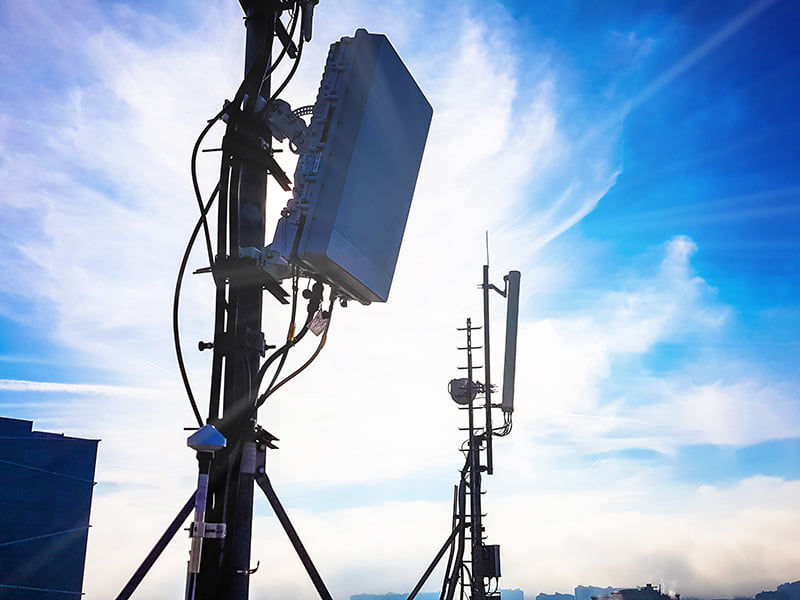The federal government has launched consultations on its new $22 million 5G Innovation Initiative, a day after rejecting many of the key recommendations from a Parliamentary inquiry into 5G.
The House of Representatives Standing Committee on Communication and the Arts tabled its report on the deployment, adoption and application of 5G in Australia in March this year, with 14 recommendations to government.
Late last week the government released its response to the report, only supporting six of the 14 recommendations. It supported in principle two others, and merely “noted” the rest of the recommendations.
The committee is government-led, chaired by Nationals MP David Gillespie, with five Coalition members and three Labor members.

Most notably, the government rejected the committee’s recommendation for new measures to encourage the manufacturing of 5G infrastructure within Australia, and for an inquiry into the current arrangements for network and data security in 5G equipment.
Recommendations supported in full include for the 5G spectrum allocation to be finalised expeditiously, a review to be commenced into the law impact facilities framework and for rollout trials to be conducted in regional and remote areas.
The committee recommended that the government look into ways to encourage the manufacture of 5G infrastructure locally, initially through the Department of Industry working with telecommunications company and the establishment of a 5G R&D Innovation Fund to “fast-track development and scale-up of alternative manufacturing approaches to reduce the duopoly dependency on 5G-related equipment”.
“The committee sees great value in encouraging industry to develop facilities within Australia to develop and build the equipment for use in Australia and internationally. Australian-based manufacture would provide economic benefits to the nation as well as employment opportunities,” the committee said in the report.
The government rejected this recommendation, saying that telecommunications equipment vendors are just not interested in making these things in Australia.
“Australian mobile carriers have existing commercial arrangements with established manufacturers for the supply of 5G components and equipment for their 5G rollouts, and Australian manufacturing of this equipment is not a priority for their rollout,” the government said in its response.
“However, local industry partners are collaborating with network equipment vendors to contribute significantly to the 5G rollout in areas such as civil works, site construction, assembly, integration and tuning of network equipment.”
Instead, the government pointed to its recently announced Modern Manufacturing Strategy and support for research and development in automated vehicles and future generations of mobile technology.
The committee also called on the government to conduct a review into the current legislative arrangements governing network and data security for the supply of 5G equipment, and make it incumbent on vendors to enforce cyber supply chain risk management in procurement, rollout and maintenance.
“Through the inquiry it was evident that 5G networks will have fundamental implications for all Australians, as well as the security of critical infrastructure. Cyber supply chain risks in relation to 5G have the ability to impact upon consumers and national infrastructure in unprecedented ways,” the committee said.
“It is the committee’s view that it is incumbent upon 5G vendors to actively monitor their supply chain and for the Australian government to provide strict guidance on this,” it said.
The government only “noted” this recommendation, saying that telcos have current obligations under the Telecommunications Act 1997, and the Parliamentary Joint Committee on Intelligence and Security is currently inquiring into this, running until September next year.
The government also said its 2020 Cyber Security Strategy includes a Best Practice Regulation Taskforce, which will work with businesses, including telcos, to protect consumers from cyber risks.
The government supported in principle recommendations including for carriers to work with state and territory road and transport infrastructure managers to ensure safety standards are maintained and for carriers to consider multiuser infrastructure sharing to ensure adequate rural and regional coverage, saying both of these are outside of its jurisdiction.
Just a day after releasing its response to the inquiry, the government released a discussion paper on its 5G Innovation Initiative, a $22.1 million program revealed in the October budget for 5G technology trials.
There will be two rounds of funding on offer, one opening early next year and the other in 2022. Both will have $10 million on offer in total, with no co-contributions required.
The funding will be for the testing of 5G technology in businesses to create commercial benefits, such as smart manufacturing solutions, smart funding, telemedicine and augmented reality. The discussion paper listed the use of 5G sensors on farms to provide real-time information on soil moisture and the use of augmented reality glasses by construction workers as potential recipients of funding from the program.
The government is now accepting submissions on the discussion paper until 11 December.
Do you know more? Contact James Riley via Email.

